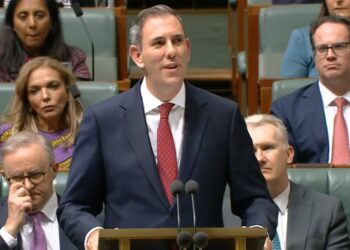During the hearing, which took place on 4 October, advisers Ross Smith and Peter Alvarez fronted the Senate committee to discuss the Australian Securities and Investments Commission’s (ASIC) regulatory role in the advice industry, including the ballooning regulatory levy that has tripled over the past year alone.
“No other service providers have to pay an industry funding levy to recoup the costs of a government agency, not accountants, not actuaries, not real estate agents, not used car salesmen,” said Mr Smith, director of Shenton Limited, in his opening statement.
“For my two small financial advice businesses last financial year, we estimate that our levies will be around $25,000 for 10 advisers, that is four times the 2018 levy,” he noted.
Mr Smith argued that the levy is “totally wrong” and suggested that ASIC should be claiming its enforcement costs against the personal indemnity insurance held by advisers.
In its latest Cost Recovery Implementation Statement (CRIS), published in June, ASIC confirmed that to cover the cost of regulating licensees that provide personal advice to retail clients, which stood at an estimated $55.5 million in 2022–23, advisers will pay a minimum levy of $1,500 plus $3,217 per adviser.
Under the former government’s ASIC levy freeze, the costs charged to the sector amounted to $22.8 million. This meant that at the time, advisers were charged a minimum levy of $1,500, plus $1,142 per adviser.
Addressing the Senate committee, Mr Smith alleged that the rising levy has triggered the mass adviser exodus seen over recent years.
“The levy has caused adviser numbers to drop from 28,000 in 2018 to around 16,000 in 2023 for a population of 26 million. This is ridiculous,” he said, adding that the levy is also responsible for driving accountants away from personal advice.
“ASIC seems to avoid all accountability,” he said.
Also addressing the committee, Peter Alvarez, financial adviser at Navigate Wealth, argued that if advice is too costly to provide, the legislation is likely no longer fit for purpose.
“If the advice industry today is expensive to regulate, investigate, enforce, and prosecute, it’s because successive parliaments have avoided a wholesale reform of the multiple acts of Parliament that govern our profession,” Mr Alvarez said.
“We, the industry, are not to blame for 20 years of bad legislation”.
He noted that while he is not opposed to paying a levy to the corporate regulator, he believes that the enforcement aspect of the ASIC levy, currently charged to advisers, should be charged to the “bad actors” alone, or the government.
“The government is not the one that’s acting to clean up the legislation,” Mr Alvarez argued.
Chairing the committee, Senator Andrew Bragg referred to the uptick in ASIC fees as “quite punitive” for financial advisers.
In August, Sarah Abood, the chief executive officer of the Financial Advice Association Australia (FAAA), brought up concerns regarding the ASIC levy and the corporate regulator’s lack of transparency before the Senate.
“We think our members may be paying for expenditure that shouldn’t be attributed to them. However, we have no visibility of how ASIC attributes its enforcement costs,” Ms Abood said.
“Very little information is provided to the regulated population on how its money is being spent.”
Ms Abood said “more transparency” would allow for any errors to be picked up, ensuring costs are being shared fairly.
‘ASIC is going backwards’
Separately on Wednesday, Mr Bragg issued a statement pointing to new data from the Commonwealth Director of Public Prosecutions (CDPP) – data which, he said, confirms that “ASIC is going backwards”.
The data reveals a significant decrease in the number of cases being referred to the CDPP by ASIC.
In the 2018–19 financial year, ASIC made 86 referrals, compared to 41 referrals in the 2022–23 financial year. So far, for the current financial year, ASIC has only made two referrals.
“These figures signal that ASIC has made Australia a haven for white-collar crime. ASIC has given up on their sole obligation to enforce corporate law,” Mr Bragg said.
Moreover, he noted, the CDPP disclosed that during the same period, the rate of prosecutions initiated from ASIC referrals plummeted from 75 per cent to 19 per cent.
“These are ugly statistics,” Mr Bragg said.




Thank you for speaking up.
55.5 millon for 41 referrals to the CDPP
It costs ASIC 1.35million per referral.
Imagine if each police investigation cost that?
As an adviser when I come across a new client who has had money stolen – we go to the police – not ASIC. I’m not even sure what to send to ASIC because every prior referral has lead to nothing.
So now, I just increase my fees to clients to cover the absolute waste that is government regulation. It’s the population who pay – not advisers.
ASIC seems to avoid all accountability = not fit for purpose. simple, either get a new regulator or calculate the real cost to client/adviser and refund the difference with interest compounded over several years.
Sorry my Witness Statement stated $35,000 for 10 advisors, not $25,000. I appreciate your review in this publication. Thanks again, Ross 🙂
Instead of focusing on how many cases have been referred by ASIC to the CDPP, the government should take a look at the banning orders and enforceable undertakings handed out to Advisers and whether they were justified, warranted or fair – ie were they suitable and comparable in length and severity to the “crimes” they allegedly were handed out for. Most would not be.
“Severe duress” is no exaggeration. I wish that we could report to police for this daytime “robbery”.
[b]Why do we have to pay and pay yearly for someone’s fault? [/b]
The only reason is that we are the easy target and we didn’t object strong enough.
We did object and strongly, it’s just that we don’t have any mates or firepower in Canberra.
another example of the govt and asic being corrupt (they are thinking of themselves more than the greater good), there is a conflict of interest here let alone massive disruption to overall advice operations. show us the calculation !
ASIC promised the Adviser Levy would be reduced by Prosecution Wins $$.
Well ASIC pay up Advisers our share of the Wins $$$$.
[b]ASIC / Govt currently have Advisers as Legal Funders yet Advisers have not received a single cent of the Prosecution wins $$$$.[/b]
PAY ADVISERS OUR SHARE $$$$ NOW !!!!
Finally! and not before time – advisers have a voice back to ASIC, and I thought pigs could not fly…
We are super and insurance sales people
Nothing more
Please don’t speak for the rest of us.
Are you forgetting your regulatory obligations and RG244 ‘Client’s best interest duties’ and FASEA standards, including No 6, in the longer term interests of the client? Are you calculating insurable needs? Are you calculating super contributions so your client is financially independent in retirement?